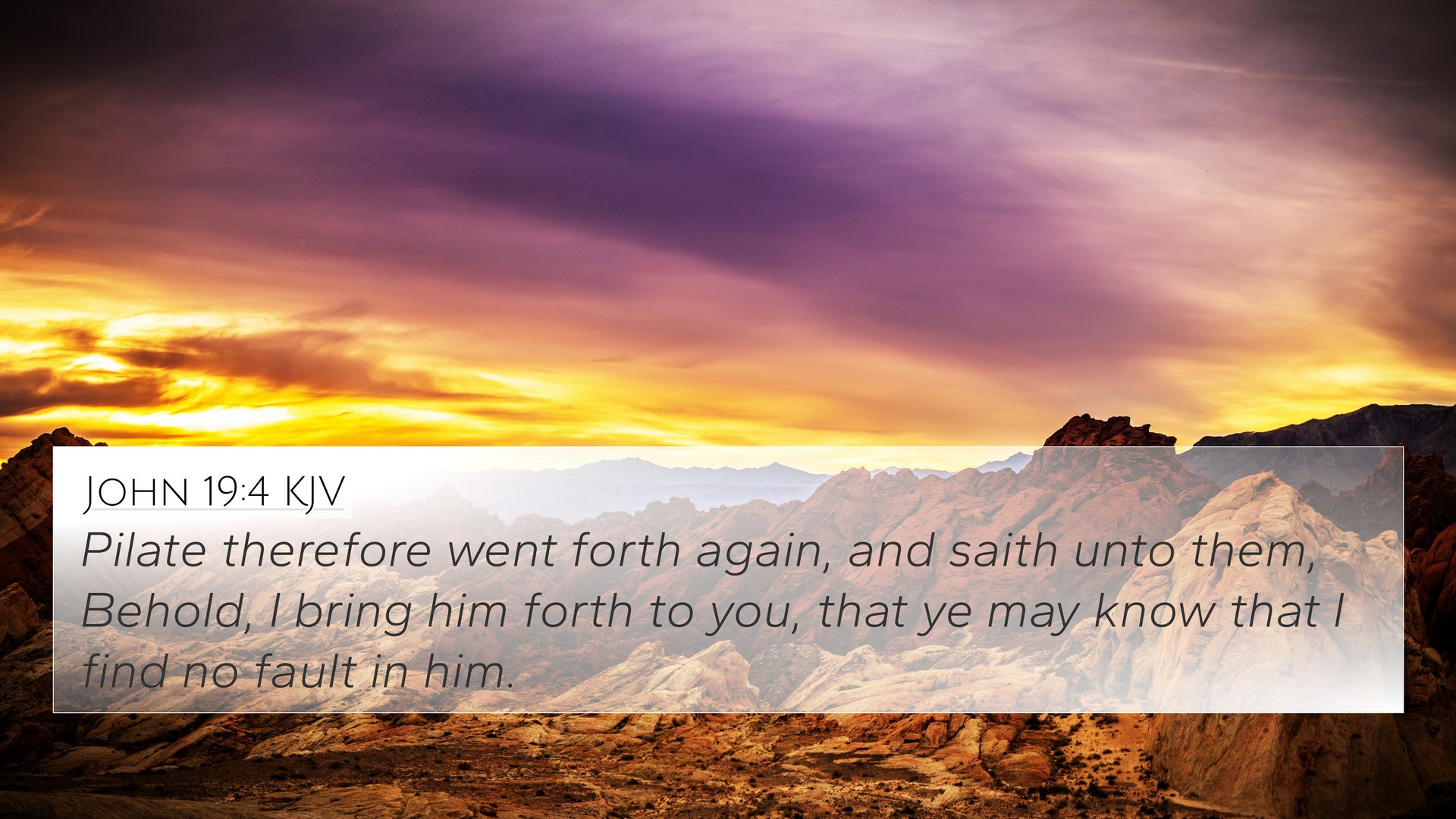This section features a detailed cross-reference designed to enrich your understanding of the Scriptures.
Below, you will find carefully selected verses that echo the themes and teachings related to John 19:4 KJV. Click on any image to explore detailed analyses of related Bible verses and uncover deeper theological insights.
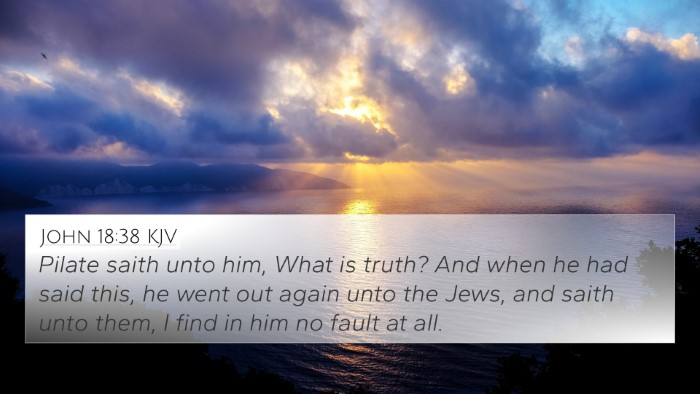 John 18:38 (KJV) »
John 18:38 (KJV) »
Pilate saith unto him, What is truth? And when he had said this, he went out again unto the Jews, and saith unto them, I find in him no fault at all.
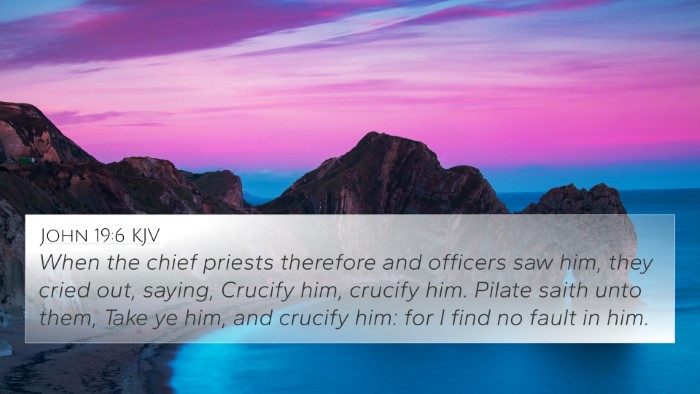 John 19:6 (KJV) »
John 19:6 (KJV) »
When the chief priests therefore and officers saw him, they cried out, saying, Crucify him, crucify him. Pilate saith unto them, Take ye him, and crucify him: for I find no fault in him.
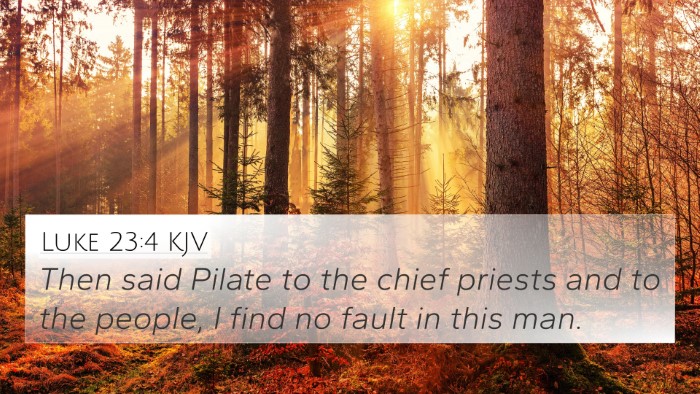 Luke 23:4 (KJV) »
Luke 23:4 (KJV) »
Then said Pilate to the chief priests and to the people, I find no fault in this man.
 1 Peter 3:18 (KJV) »
1 Peter 3:18 (KJV) »
For Christ also hath once suffered for sins, the just for the unjust, that he might bring us to God, being put to death in the flesh, but quickened by the Spirit:
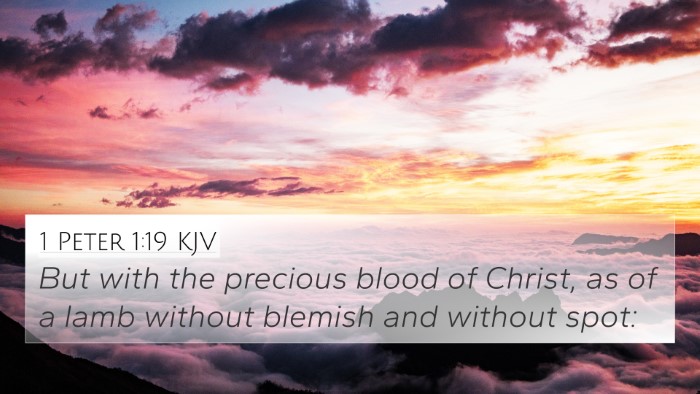 1 Peter 1:19 (KJV) »
1 Peter 1:19 (KJV) »
But with the precious blood of Christ, as of a lamb without blemish and without spot:
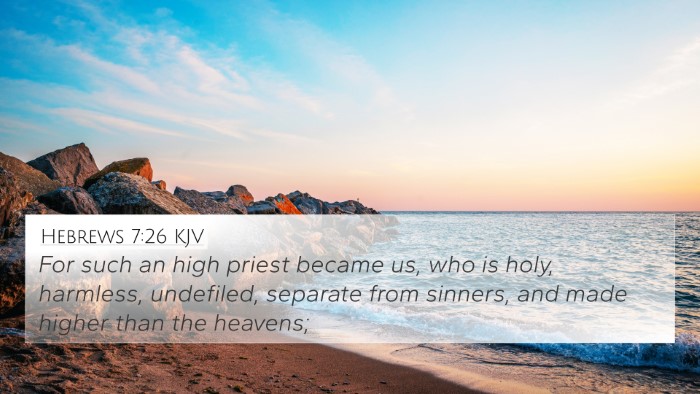 Hebrews 7:26 (KJV) »
Hebrews 7:26 (KJV) »
For such an high priest became us, who is holy, harmless, undefiled, separate from sinners, and made higher than the heavens;
 2 Corinthians 5:21 (KJV) »
2 Corinthians 5:21 (KJV) »
For he hath made him to be sin for us, who knew no sin; that we might be made the righteousness of God in him.
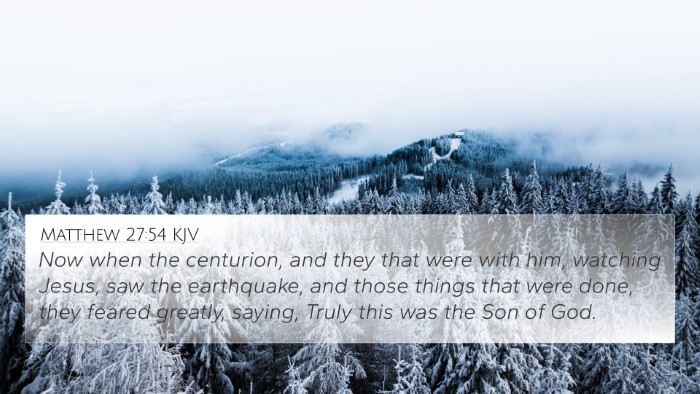 Matthew 27:54 (KJV) »
Matthew 27:54 (KJV) »
Now when the centurion, and they that were with him, watching Jesus, saw the earthquake, and those things that were done, they feared greatly, saying, Truly this was the Son of God.
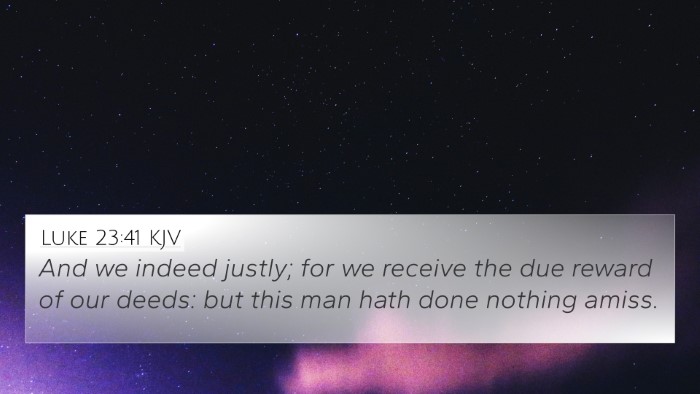 Luke 23:41 (KJV) »
Luke 23:41 (KJV) »
And we indeed justly; for we receive the due reward of our deeds: but this man hath done nothing amiss.
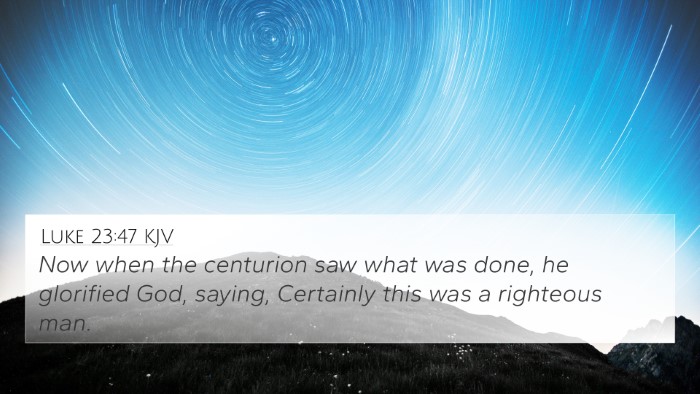 Luke 23:47 (KJV) »
Luke 23:47 (KJV) »
Now when the centurion saw what was done, he glorified God, saying, Certainly this was a righteous man.
 Matthew 27:19 (KJV) »
Matthew 27:19 (KJV) »
When he was set down on the judgment seat, his wife sent unto him, saying, Have thou nothing to do with that just man: for I have suffered many things this day in a dream because of him.
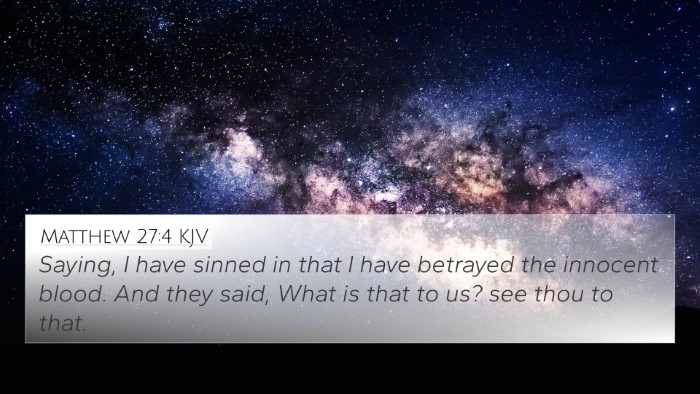 Matthew 27:4 (KJV) »
Matthew 27:4 (KJV) »
Saying, I have sinned in that I have betrayed the innocent blood. And they said, What is that to us? see thou to that.
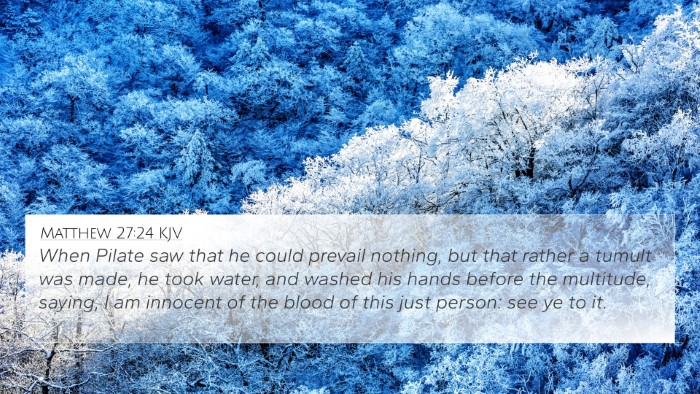 Matthew 27:24 (KJV) »
Matthew 27:24 (KJV) »
When Pilate saw that he could prevail nothing, but that rather a tumult was made, he took water, and washed his hands before the multitude, saying, I am innocent of the blood of this just person: see ye to it.
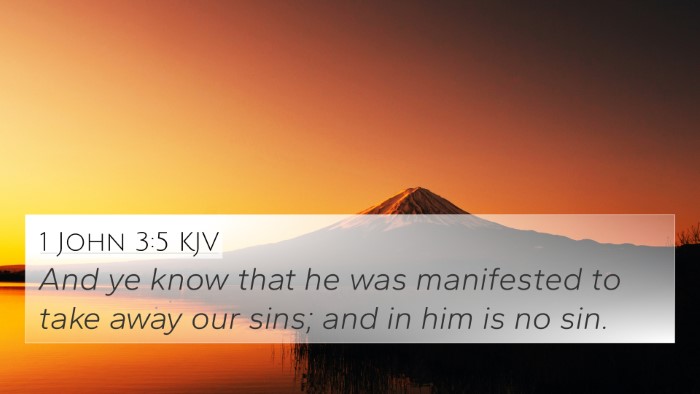 1 John 3:5 (KJV) »
1 John 3:5 (KJV) »
And ye know that he was manifested to take away our sins; and in him is no sin.
